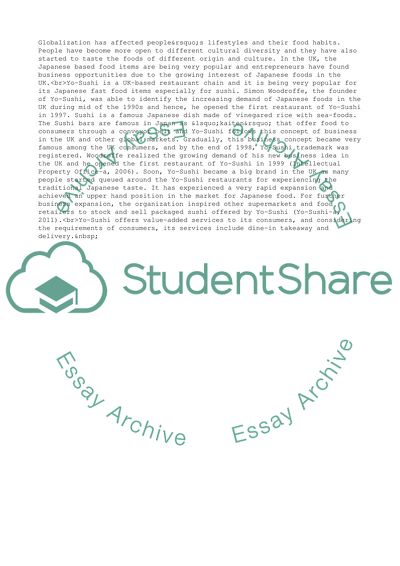Cite this document
(Evaluation of a Recent Entrepreneurial Venture: Yo Shushi Case Study - 1, n.d.)
Evaluation of a Recent Entrepreneurial Venture: Yo Shushi Case Study - 1. Retrieved from https://studentshare.org/business/1748331-evaluate-a-recent-entrepreneurial-venture-yo-shushi
Evaluation of a Recent Entrepreneurial Venture: Yo Shushi Case Study - 1. Retrieved from https://studentshare.org/business/1748331-evaluate-a-recent-entrepreneurial-venture-yo-shushi
(Evaluation of a Recent Entrepreneurial Venture: Yo Shushi Case Study - 1)
Evaluation of a Recent Entrepreneurial Venture: Yo Shushi Case Study - 1. https://studentshare.org/business/1748331-evaluate-a-recent-entrepreneurial-venture-yo-shushi.
Evaluation of a Recent Entrepreneurial Venture: Yo Shushi Case Study - 1. https://studentshare.org/business/1748331-evaluate-a-recent-entrepreneurial-venture-yo-shushi.
“Evaluation of a Recent Entrepreneurial Venture: Yo Shushi Case Study - 1”, n.d. https://studentshare.org/business/1748331-evaluate-a-recent-entrepreneurial-venture-yo-shushi.


